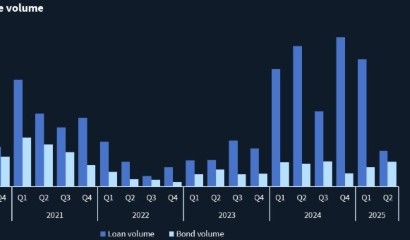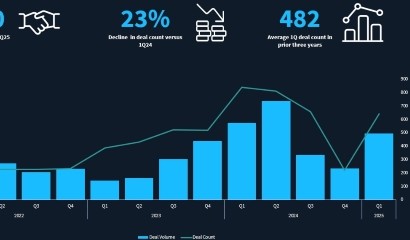Brazilian bankruptcy law reform moves forward with controversial modified bill
On 19 March 2024, Brazilian congresswoman Dani Cunha (of the Uniao/RJ party) presented a modified version of bill 03/2024, which was recently proposed by the government to reform Brazilian bankruptcy law. The original version of the bill aims to improve the process surrounding the liquidation of companies declared bankrupt, specifically by proposing modifications to make it faster and more effective.
However, a portion of the amendments added to the revised version seems to be very controversial, and have led specialists, like former judge Daniel Carnio Costa, and several bankruptcy-related associations – including the Brazilian Chapter of Turnaround Management Association (TMA Brasil), Centro de Mulheres na Reestruturacao Empresarial (CMR), Instituto Brasileiro de Direito Empresarial (IBDE) and a number of Bar Association Sections, among others – to strongly criticize it.
Legislative process on an urgent basis
First of all, complaints center on the fact that the legislative proceeding is moving forward on a “constitutional urgent basis”, which in practice means skipping certain formalities typically required by such a bill in administrative proceedings, and also blocking the Chamber’s agenda (i.e, preventing other bills from being examined) until the bill is assessed and voted on.
However, the supposed urgency for the bill approval contrasts with the depth and complexity of the proposed modifications, which should be the object of more discussion involving judges, attorneys, judicial managers, public prosecutors, professors and other specialists involved in insolvency matters. According to the criticisms expressed about the modified bill, removing the constitutional urgent basis would work better to provide more time and opportunities for the bill to develop prior to being converted into law.
Judicial manager in the crosshairs – reducing appointment opportunities and fees
Pursuant to the governing bankruptcy law, judicial managers are appointed by the courts to assist from the commencement of bankruptcy cases until the closing. Also, there are no restrictions on the courts to appoint the same judicial manager to act in several cases, provided that they are “suitable professionals and preferably lawyers, economists, business managers or accountants, or specialized firms”, as set forth in the law. The amount of judicial manager fees is stated by the court, relying on the complexity of the case and in accordance with the values practiced in the market, always limited to 5% of the impaired claims – in a judicial recovery – or 5% of the proceeds of asset sales, in a liquidation proceeding.
The revised bill proposes relevant modifications applicable to judicial managers: first, they may be appointed by the court to work in a case for only three years, a period that may be extended only once for the same amount of time (depending on creditor approval), after which they should be replaced with another judicial manager. Throughout the mandate and during the two years following its end, the same judicial manager may not be appointed by the same judge – or in the same venue – to act in another case, whenever the manager had been appointed in a “large” case, defined as those commenced by companies whose share capital or value of assets correspond to at least BRL 28.2m.
The amended version of bill 03/24 also set new guidelines for the definition of judicial manager fees, relying on a percentage of (i) claims impaired by a judicial recovery or (ii) payments made to creditors in a liquidation. The proposed percentage rates are inversely proportional to the reference value (impaired claims or payment to creditors), and vary from 2% (when the reference value is larger than BRL 423.6m) to 5% (when it is less than BRL 70.6m).
In any case, the judicial manager fees must never exceed a total amount of BRL 28.2m, and monthly instalments of BRL 41,650 (which corresponds to the wage of a Superior Court Minister). According to the revised bill, these modifications aim to avoid situations in which judicial managers earn millions of BRL while prepetition creditors see their claims drastically reduced by haircuts and long-term rescheduling, which is commonplace in debt restructuring or liquidation plans.
In fact, judicial manager fees have been a source of endless disputes in high-profile Brazilian bankruptcy cases in the recent past, including Americanas, Mina Tucano and Samarco Mineracao. On the other hand, these proposals had also been criticized on the grounds that (i) limiting fees would make good professionals less interested in being appointed to act in large cases, in which the support they provide courts is pivotal for the success of the restructuring, and (ii) it does not make any sense to adopt the wage of Superior Court Minister as a criteria, as judicial managers are private companies or individuals, not public employees.
Modifications proposed to judicial recoveries
The modified version of bill 03/2024 also proposes changing certain sections applicable to judicial recovery processes, the traditional reorganization proceeding inspired by the US Chapter 11 provisions. The main proposed reforms regard both (i) definition of a minimum quorum for creditor meetings to be held and (ii) the interval between a first and a second judicial recovery filing.
Under the governing law, creditor meetings are scheduled for two dates: the first requires a minimum quorum of impaired claimholders to be held, while the second may take place regardless of the amount of creditors in attendance. If the bill is approved, all creditor meetings will require the presence of at least 50% of creditors to be held. The idea is to increase creditor participation in plan voting proceedings but, in practice, it could delay or even ruin the process, as this percentage of attending creditors has been rarely achieved in the meetings held since the law was enacted – especially in large cases that sometimes involve thousands of creditors.
Additionally, Section 48, II of the law prohibits companies from filing for judicial recovery again within five years from the date in which a first bankruptcy process is granted, which corresponds to the date of the plan sanctioning decision, in line with the wording of Section 58 of the law. Notably, in Oi SA’s first judicial recovery, the plan confirmation ruling was first issued in January 2018, when the original debt restructuring plan was confirmed, and then again in October 2020, when an amended version of the reorganization plan was approved by creditors and ratified by the court.
As the governing law does not provide for the possibility of presenting amended plans, there is no statutory guidance to govern which of the plan acceptance decisions the five-year gap set forth in Section 48 refers to, and the telecom services provider would only meet the legal requirements for a second judicial recovery if we consider that the first decision was the trigger.
In this scenario, the amended bill proposes changing current provisions to allow companies to file for bankruptcy again only two years after the closing of the first case. Explicitly mentioning the so-called “endless” case of Oi, the bill aims to prevent successive judicial recoveries, thereby avoiding distressed companies abusing the right of seeking court oversight to restructure their debt. The criticisms here include pointing out that the original bill was presented with the explicit objective of improving liquidation proceedings of distressed companies, and therefore, it should not deal with the framework of judicial recovery.
Current status and next steps
Revised bill 03/2024 remains pending with the board of directors of the Brazilian Chamber of Deputies. A development in the legislative process for its approval is expected in the near term, unless the Brazilian insolvency community succeeds in its efforts to remove the constitutional urgent basis under which the legislative process is working.
Related links:
Click here to view original bill 03/24 (in Portuguese).
Click here to view revised bill 03/24 (in Portuguese).











